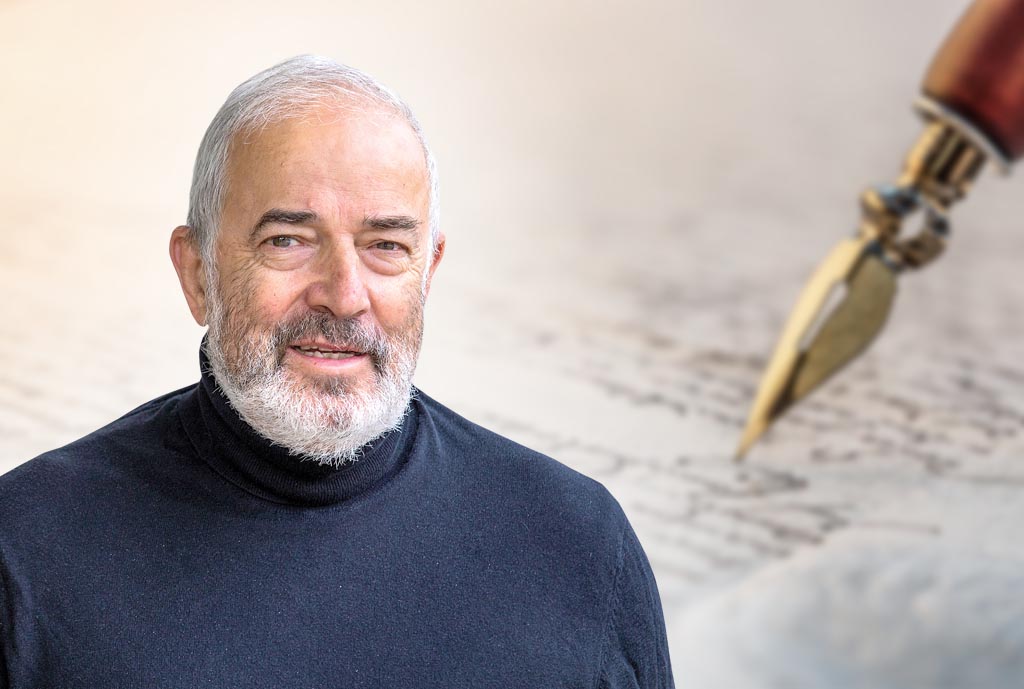By: Mag Igor Omerza
The President of the country, Nataša Pirc Musar, stated on Independence Day “how much our ancestors fought for our independence during World War II”. She was referring to the partisans. Well, maybe there was a partisan who wanted or thought that by fighting the occupier, they were also fighting for a Slovenian state.
However, any post-war public discourse about an independent Slovenia was strictly prohibited by the Slovenian communist leadership, which led the partisan movement, regardless of whether the partisans or non-partisans wanted to talk about it. Such discussions could be and indeed were conducted publicly in exile (e.g., Franc Jeza in Trieste) and in political emigration (Ciril Žebot, France Dolinar, Ruda Jurčec, etc.). The Udba closely monitored and confiscated such writings at the border or within Slovenia.
The regime’s top brass, along with their secret political police (Udba), also persecuted private thoughts about an independent Slovenia. A partisan but not a communist, Franc Miklavčič, developed a programme for an independent Slovenia in his diary. When Zemljarič’s Udba discovered it in 1976, he went to prison because of it. Interestingly, it was Zemljarič, who persecuted anyone with thoughts of independence, who received military honours at his funeral (as decreed by the government), and I did not notice any opposition or protest from the supreme commander of the Slovenian army, Pirc Musar, against this outrageous misuse of our honour guard.
In short, partisan Miklavčič was convicted because he wrote about independence in his diary. This essentially means he was convicted for his thoughts. Later, Miklavčič found a relevant judicial precedent from Hitler’s Germany, from the early years of the regime when German courts still tried to maintain some legality. It is a 1937 ruling by the Supreme State Court in Leipzig stating that “criticism is not punishable if a citizen confides his critical thoughts to a diary (Tagebuch), which can be presumed will not come to anyone else’s attention”. You can find more about this, and much more, in my book Edvard Kocbek – Personal File No. 584.
Well, what about the Stalinist leadership of the partisan movement, which, as Pirc Musar correctly notes, sullied the fight against the occupier with post-war atrocities against disarmed Home Guard members? Did this leadership ever advocate for an independent Slovenia during the war? Not at all, they advocated for a Soviet/Russian Slovenia and continued to do so until the break with Stalin in 1948, within the framework of Yugoslavia, of course.
THE COMMUNIST SIDE THAT LED THE PARTISANS DID NOT ADVOCATE FOR AN INDEPENDENT SLOVENIA; THIS WAS DONE BY THE ANTI-COMMUNIST SIDE DURING AND AFTER THE WAR!
I do not know, but there are probably thousands of partisan memorials in Slovenia, and you will not find a single one that states the partisans fought and died for an independent Slovenia. Neither will you find anything about independence on the monuments to communist leaders or under them. Furthermore, the victory over the occupier did not bring freedom, but rather dark years of killings, show trials, forced labour, destruction of private and peasant property, subordination of all institutions (except the Church) to the communist party, allegiance to the Yugoslav communist federation, and more.
And what does the stone “communist” plaque at the monument to the revolution in the heart of Ljubljana, at Republic Square, which was called Revolution Square before independence, still say? “We wrote in the constitution that the Slovenian nation is inseparably linked with other nations and nationalities in Yugoslavia through its national liberation struggle and socialist revolution.” So, according to this inscription, Slovenians were inseparably connected to Yugoslavia during the war. There is no hint of Nataša’s claims about the independence efforts of wartime fighters against the occupier!
Paradoxically, it was the anti-communist and anti-partisan side, embodied by Professor and Priest Lambert Ehrlich and Dr Ciril Žebot, that propagated the idea of an independent Slovenia during the war; Ehrlich as early as November 1941. In May 1942, he was treacherously murdered by a member of the murderous secret Slovenian Stalinist police (VOS), Franc Stadler – Pepe, on Kardelj’s orders. Žebot was supposed to be killed by VOS agent Kamil Kratochwill – Mile, but by a stroke of luck, he survived. Later, Žebot had to flee to Rome to escape the Gestapo. You can find more about this, and much more, in my book Giants of Slovenian Independence and Udba, subtitled Ciril Žebot – Peter.
The communist side, which led the partisans, therefore did not advocate for an independent Slovenia, but the anti-communist side did during and after the war! Directly linking the otherwise commendable fight against the occupier with Slovenian independence is therefore absurd and untrue!

